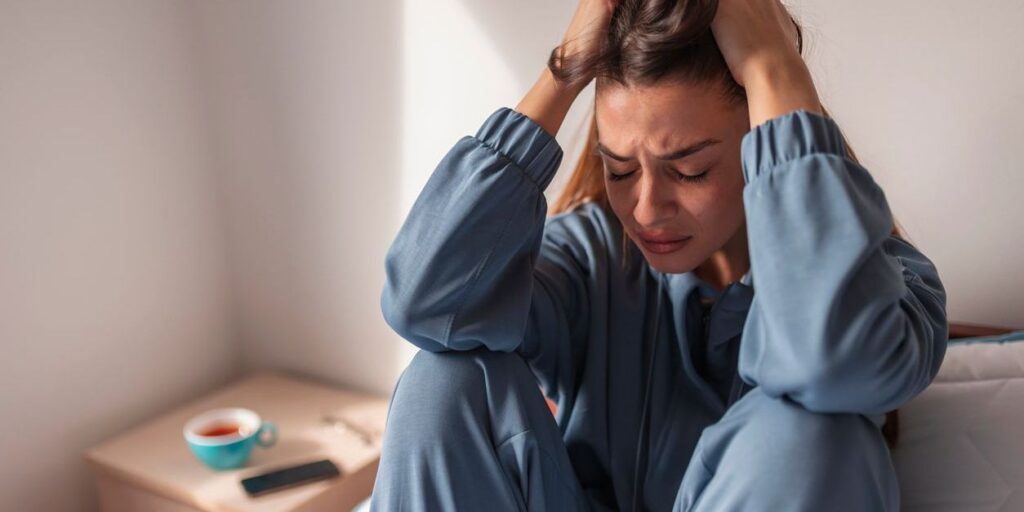
The Relationship Between Stress and Anxiety
Stress and anxiety are closely linked, and while they are different, they often overlap. Stress is the body’s response to pressure or demands, while anxiety is the ongoing feeling of worry, fear, or unease that can follow when stress becomes overwhelming or prolonged. Understanding the connection between the two can help you recognise what’s happening in your own life and take steps to manage it.
What Is Stress?
Stress is a natural response to challenging situations. It can sometimes be helpful – motivating us to meet deadlines or react quickly in an emergency. However, when stress becomes long-term, it can take a toll on both physical and mental health.
What Is Anxiety?
Anxiety goes beyond everyday stress. It often involves persistent worry or fear that does not go away, even after a stressful event has passed. For some, anxiety can develop into an anxiety disorder, which may require professional support.
How Stress Can Lead to Anxiety
Stress and anxiety can create a cycle:
- Prolonged stress keeps the body in “fight or flight” mode.
- This ongoing tension can make it harder to relax or switch off.
- Over time, this can trigger anxious thoughts, sleep problems, and even panic attacks.
Not everyone who feels stressed will develop anxiety, but those with ongoing or high levels of stress are at greater risk.
Possible Causes of Stress and Anxiety
The triggers can vary from person to person, but common causes include:
- Work and study pressures - Long hours, deadlines, or exam stress.
- Financial worries - Debt, housing, or uncertainty about the future.
- Relationships - Conflict, loneliness, or family responsibilities.
- Health concerns - Illness, chronic pain, or fear of becoming unwell.
- Life changes - Moving home, job loss, bereavement, or divorce.
- Modern stressors - Technology overload, social media, or constant news cycles.
Possible Causes of Stress and Anxiety
The triggers can vary from person to person, but common causes include:
- Work and study pressures - Long hours, deadlines, or exam stress.
- Financial worries - Debt, housing, or uncertainty about the future.
- Relationships - Conflict, loneliness, or family responsibilities.
- Health concerns - Illness, chronic pain, or fear of becoming unwell.
- Life changes - Moving home, job loss, bereavement, or divorce.
- Modern stressors - Technology overload, social media, or constant news cycles.
Effects of Stress and Anxiety
When stress and anxiety are not managed, they can impact daily life in significant ways:
- Reduced work or study performance
- Strain on relationships
- Greater risk of mental health conditions such as depression
- Physical health problems like high blood pressure, weakened immunity, or digestive issues
Coping Strategies and What Can Help
The good news is that both stress and anxiety can be managed with the right tools and support.
Day-to-day strategies:
- Breathing and relaxation exercises: Deep breathing, mindfulness, or grounding techniques.
- Exercise: Even short walks can help lower stress hormones and boost mood.
- Healthy lifestyle choices: Eating well, sleeping regularly, and limiting caffeine or alcohol.
- Routine and boundaries: Setting limits at work, taking breaks, and balancing responsibilities.
- Talking it out: Sharing with trusted friends, family, or peer support groups.
Professional support:
- GP support: Your doctor can check for underlying health issues and refer you to therapy or counselling.
- NHS Talking Therapies (England): Self-referral services for CBT and other treatments.
- Charities: Organisations such as Mind, Anxiety UK, and Rethink Mental Illness provide advice and helplines.
When to Seek Help
If stress or anxiety is affecting your everyday life, relationships, or physical health, it’s important to seek professional help. Urgent support should be sought if you ever feel you might harm yourself – call 999 or go to your nearest A&E.
Final Thoughts
Stress and anxiety are part of life, but they don’t have to control it. Recognising the signs early, learning coping strategies, and reaching out for support can all make a real difference. Whether it’s small daily changes, talking to someone you trust, or seeking professional help, there are always steps you can take towards feeling better.
